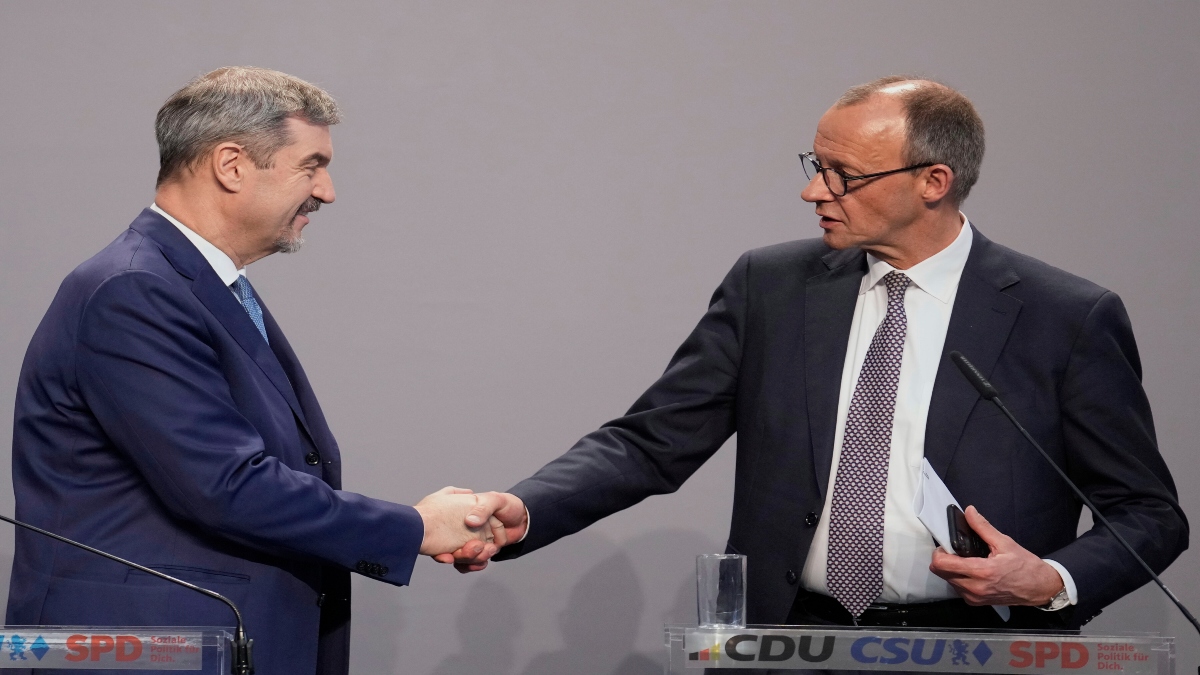Friedrich Merz, leader of the conservative German party CDU is set to be elected chancellor on May 6, party sources said on Friday.
The conservatives and their centre-left SPD partners had agreed on the date, party sources from both blocs added.
On Wednesday, the conservative Friedrich Merz and the leaders of Germany’s center-left Social Democratic Party (SPD) swiftly finalised a coalition agreement.
The deal emerged amid mounting pressure on German politicians to quickly establish a new government capable of addressing the significant challenges posed by US President Donald Trump’s trade war and the threats from Russian President Vladimir Putin.
The agreement, reached just 45 days after Merz’s conservatives won a snap election, is notable for its speed by German standards, as coalition negotiations often extend for months.
After the deal was sealed, Merz vowed to “move the country forward again” by boosting the economy and defence.
Asked at a press conference if he had a message for Trump, Merz said in English that the country would meet its defence obligations and rebuild its economic competitiveness.
“Germany is back on track,” AFP quoted Merz.
The coalition deal arrives amid significant uncertainty for Germany and Europe, following Trump’s 20% tariffs on the EU, which could severely impact Germany’s export-driven economy.
Simultaneously, Merz has pledged to bolster the military in light of Putin’s threats and the diminishing transatlantic alliance crucial for Germany’s defence.
Impact Shorts
More ShortsThese economic and security challenges heightened pressure on Merz and the SPD to quickly establish a stable government. Germany has been operating under a fragile minority government led by outgoing Chancellor Olaf Scholz, whose three-party coalition fell apart in November over spending disputes.
With inputs from agencies


)

)
)
)
)
)
)
)
)



